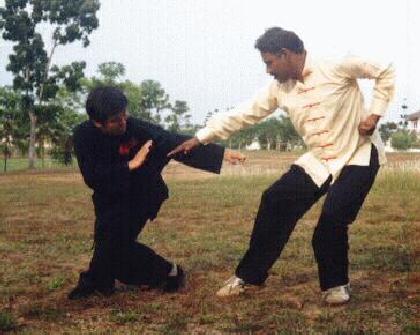THE SCHOLAR-WARRIOR IDEAL

Becoming a scholar-warrior
Question
Sifu, I have to write to you personally to thank you with all my heart for the wonderful experience of your Chi Kung course in Bath. As well as sharing with me the skills to become a Chi Kung practitioner, you have also done even more for me. The speeches that you made, while the rest of us were sitting down, moved me very greatly. The model of a “scholar-warrior” has become my aspiration.
-- Donald, United Kingdom
Answer
I am very glad that you have benefited much not just from chi kung but more so from the philosophical ideals that we cherish at Shaolin Wahnam. In our school, we do not merely teach chi kung, Shaolin Kungfu or Wahnam Taijiquan; we teach a way of life that is meaningful and rewarding for ourselves and for other people.
We are quite clear about our aims and objectives. For most of us, we choose the scholar-warrior ideal. For those of us who are more advanced in our training, we aspire to be warrior-monks. We do not really go to war to be warriors or shave our heads to be monks. We aspire to their ideals, such as the clarity of thought and intellectual depth of a scholar, the courage and righteousness of a warrior, and the compassion and cosmic wisdom of a monk.
Actually all of us are warriors. If you compete in sport, work in a profession, or engage in business, you are a warrior. But we do not want to be a crude warrior, like one who is proud of a scar received from a football match, stabs his colleagues on their back, or drives his competitors to bankruptcy. We want to be a scholar-warrior or a warrior-monk, someone who not only excels in his profession or business, but also is a wonderful husband, father and friend, someone who is successful in life as well as compassionate and wise.
And we are no day-dreamers. We set our vision, and we find direction to our destination. We know the journey involves hard work, but we are confident we can accomplish our task. We know our chi kung, Shaolin Kungfu or Wahnam Taijiquan training will give us the mental clarity and internal force besides courage and determination needed for our journey, and we use our Ten Shaolin Laws to guide us in our daily conduct.
The above is taken from Question 1 of June 2003 Part 2 of the Selection of Questions and Answers.
LINKS
Courses and Classes
